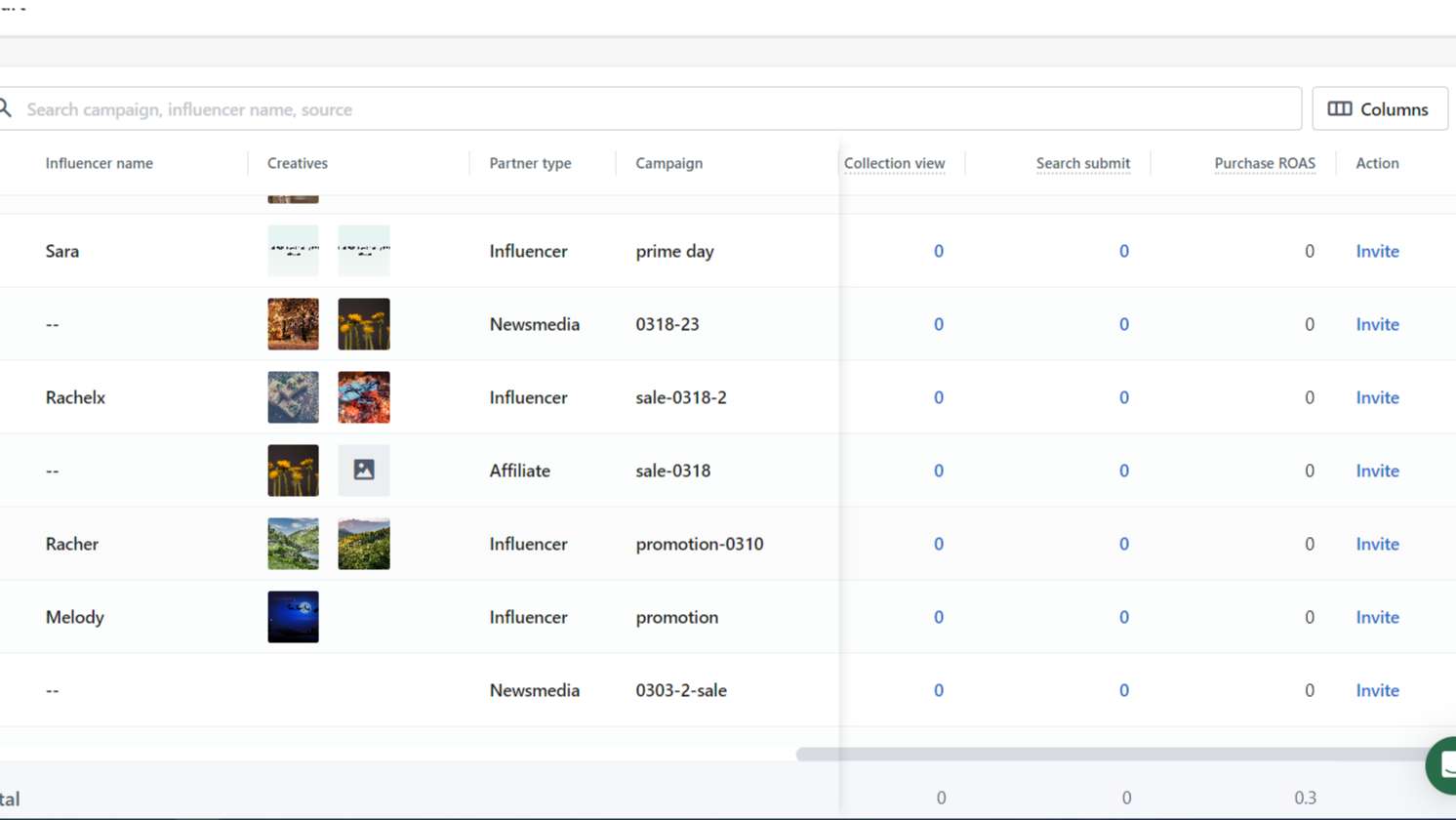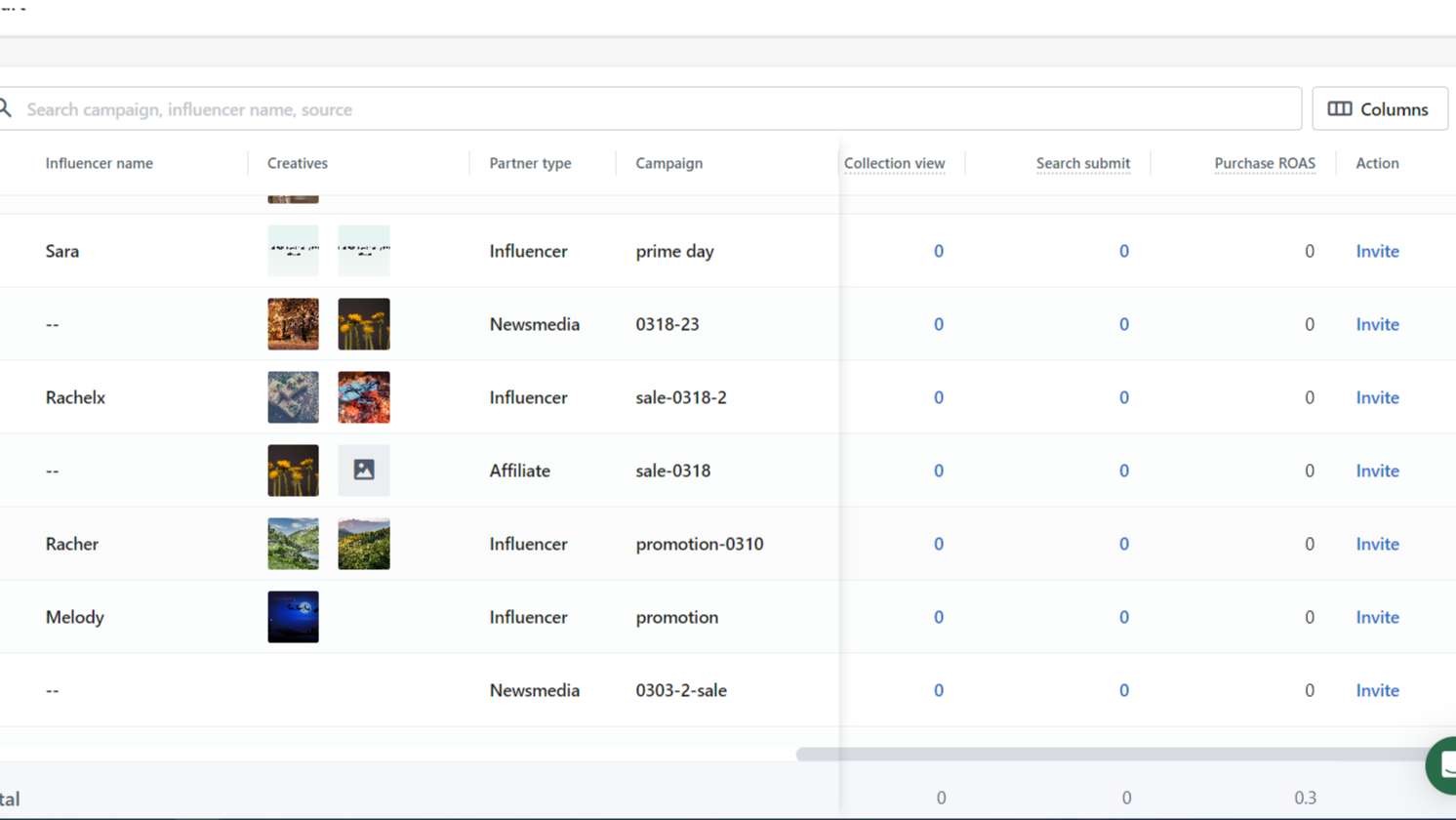What Is Commission-Based Influencer Marketing?
Commission-based influencer marketing is a performance-driven strategy where influencers earn a commission for each sale or conversion they generate. Instead of paying flat fees upfront, Shopify store owners can partner with influencers in a low-risk, high-ROI model — paying only when results are delivered.
This approach aligns the goals of both the brand and the influencer, making it a popular choice in 2025 for ecommerce businesses seeking measurable growth. Whether you're just starting with influencer marketing or scaling existing campaigns, the commission-based model offers transparency, control, and trackable performance.
Benefits for Shopify Store Owners
Commission-based influencer marketing offers unique benefits for Shopify store owners:
-
Lower upfront cost: You don’t need to pay large flat fees — only reward results.
-
Performance alignment: Influencers are more motivated to drive actual sales, not just post content.
-
Scalability: You can work with multiple influencers at once, paying only for what they produce.
-
Data-driven: Everything can be tracked, allowing you to reinvest in what’s working.
For bootstrapped or ROI-conscious ecommerce brands, this model is one of the most accountable and cost-efficient ways to grow via creator partnerships.
Key Features of the Commission-Based Model
Commission-based influencer marketing offers several key features that make it an effective strategy for Shopify store owners and marketers. By understanding and utilizing these features, businesses can maximize the benefits of working with influencers to drive sales and increase brand awareness.
One of the primary features of commission-based influencer marketing is the ability to pay influencers based on the sales they generate. Unlike traditional influencer collaborations where influencers are paid a flat fee, commission-based marketing allows businesses to compensate influencers directly for their impact on sales. This creates a mutually beneficial relationship where influencers have a vested interest in promoting the products or services effectively, as their earnings are directly tied to their performance.
In order to track and monitor influencer performance and sales accurately, businesses need robust tracking systems in place. These systems allow them to measure the effectiveness of each influencer's efforts and determine their contribution to overall sales. Tracking tools provide valuable insights into which influencers are driving the most traffic and conversions, allowing businesses to optimize their campaigns accordingly.

When engaging in commission-based influencer marketing, it is crucial to negotiate commission rates and terms with influencers upfront. This ensures that both parties have a clear understanding of expectations and compensation structures. Negotiating commission rates can be based on various factors such as an influencer's reach, engagement rate, or niche expertise. By establishing fair and transparent agreements, businesses can foster long-term relationships with influencers while maintaining profitability.
To facilitate seamless transactions between influencers and customers, providing unique discount codes or affiliate links is another key feature of commission-based influencer marketing. These codes or links enable businesses to track purchases made through an influencer's promotion accurately. Additionally, they incentivize customers by offering exclusive discounts or incentives tied to the influencer's content. This not only encourages customers to make a purchase but also strengthens the relationship between the customer, influencer, and brand.
As commission-based influencer marketing continues to evolve, there are several future trends that businesses should be aware of. One trend is the integration of influencer marketing platforms with Shopify. This integration would streamline the process of finding and collaborating with influencers, as well as tracking their performance directly within the Shopify platform.
Another future trend is the increased use of micro-influencers for niche markets. Micro-influencers, who have smaller but highly engaged followings, can be particularly effective in reaching specific target audiences. Their authenticity and relatability make them powerful advocates for niche products or services.
Furthermore, data analytics will play a crucial role in measuring the effectiveness of commission-based influencer marketing campaigns. Businesses can leverage analytics tools to track key metrics such as conversion rates, click-through rates, and return on investment. These insights will enable businesses to refine their strategies and allocate resources more effectively.
Lastly, the development of influencer marketing automation tools is expected to simplify campaign management and optimization processes. These tools will streamline tasks such as influencer discovery, contract management, and performance tracking.
How to Track Influencer Conversions with Attribuly
To accurately track influencer performance in Attribuly:
-
Create a campaign profile for each influencer partnership.
-
Generate a unique tracking link and provide it to the influencer to embed in their content (Instagram bio, YouTube description, etc.).
-
Monitor performance metrics such as clicks, conversions, and revenue from the dashboard.
-
Adjust the attribution window as needed based on your campaign goals.
-
If a customer clicks on multiple influencer links, you can configure attribution logic to credit either the first or last influencer, depending on your setup.
This centralized approach ensures accurate influencer performance tracking and clear ROI attribution.
Ready to simplify campaign tracking? Attribuly helps you manage every link, conversion, and commission from one dashboard.
How to Find and Recruit Commission-Based Influencers
Finding the right influencers is just as important as tracking them. To run a successful commission-based campaign, consider:
-
Influencer marketplaces like Shopify Collabs or UpPromote, which support affiliate-style partnerships.
-
Manual outreach: Use Instagram, TikTok, or YouTube search to identify creators in your niche.
-
Existing customer base: Some of your best influencers are already your customers. Invite them to promote your store for a commission.
When recruiting influencers, clearly communicate:
-
The commission rate and terms
-
How tracking and attribution will work (e.g., unique links or codes)
-
What kind of content you're expecting
Conclusion: A Smarter Way to Scale with Influencers
Commission-based influencer marketing offers Shopify merchants a powerful way to scale their business with minimal risk. By paying only for real results and tracking performance with tools like Attribuly, brands can build influencer partnerships that are measurable, transparent, and profitable. Whether you're starting from scratch or optimizing an existing program, this model is a smart way forward in 2025.
Ready to start tracking influencer performance with confidence? Get started with Attribuly today.
